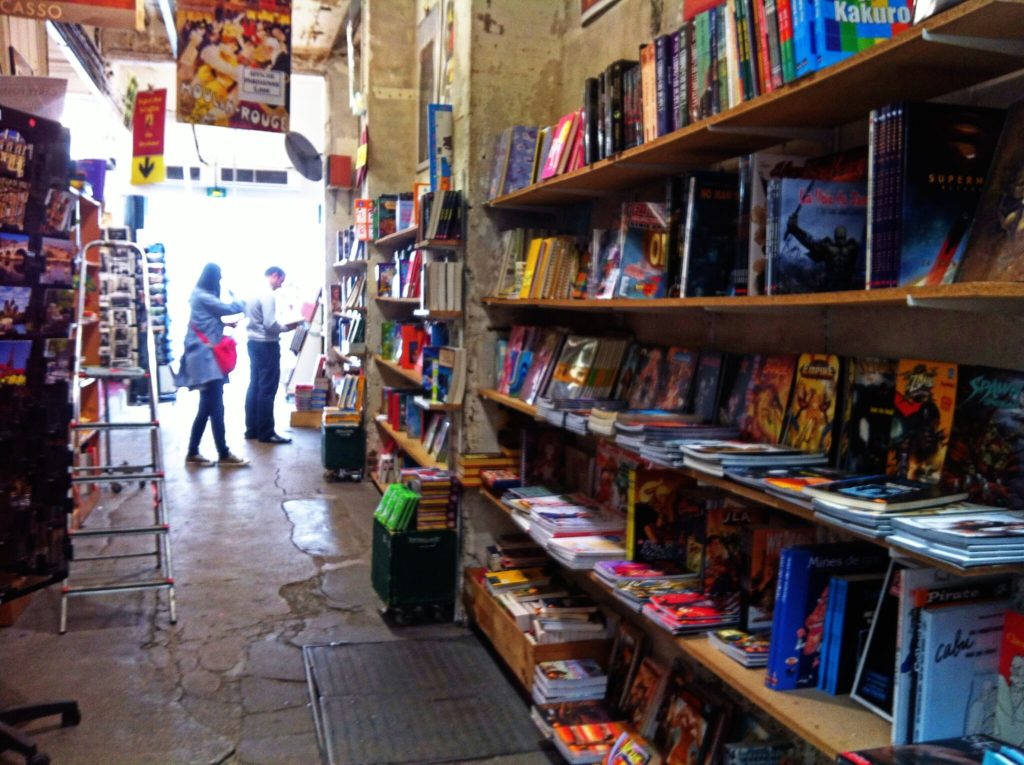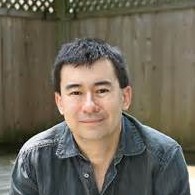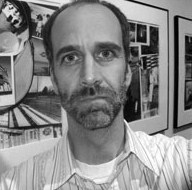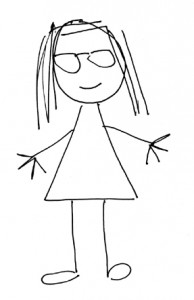 Do you remember your school’s book fair? Ours was held in the library, the tables transformed into merchandise displays, books facing out from cardboard stands shaped like Snoopy’s doghouse or Clifford’s gigantic bowl, books grouped by series, recognizable in an instant, the red and white Choose Your Own Adventure logo; the Garfield books arranged like long, squat bricks; Hardy Boys books a blue sky, Nancy Drew a field of yellow. Pricey hardback picture books, too, that always included, year after faithful year, Green Eggs and Ham and Where the Wild Things Are, even though this was elementary school, Dr. Seuss long since replaced by Gary Paulsen. Looking at the picture books a crime punishable by lunchroom teasing.
Do you remember your school’s book fair? Ours was held in the library, the tables transformed into merchandise displays, books facing out from cardboard stands shaped like Snoopy’s doghouse or Clifford’s gigantic bowl, books grouped by series, recognizable in an instant, the red and white Choose Your Own Adventure logo; the Garfield books arranged like long, squat bricks; Hardy Boys books a blue sky, Nancy Drew a field of yellow. Pricey hardback picture books, too, that always included, year after faithful year, Green Eggs and Ham and Where the Wild Things Are, even though this was elementary school, Dr. Seuss long since replaced by Gary Paulsen. Looking at the picture books a crime punishable by lunchroom teasing.
We would visit the fair as a class, our teachers instructing us that we had a few minutes to browse and make our choices, but not to bend the books, which seemed contradictory instructions. You couldn’t really make your choice without bending the book, at least a little. We handled Garfield At Large and The Mystery of Chimney Rock and You’ll Flip, Charlie Brown as if they were the First Folio. We checked prices, added up sums, estimated how much money we could wheedle from our parents. But it’s for books, Mom. You’re always saying how important reading is, right? Everyone else is getting at least twice that much.
It was strange to see the school library—the last word in free stuff—become a place of commerce. Two book fair representatives sat at the checkout desk, the place where our librarian, Mrs. Dougherty, usually stamped our copies of Baseball’s Greatest Plays or Shark Attack! weeks before we lost them on the bus, the representatives wearing nametags, oddly overdressed, a black cash box atop the desk, a key turned inside its lock. We weren’t used to buying things at school, and we certainly weren’t used to the library being a place where everyone wanted to go. If the library got too noisy, Mrs. Dougherty would sometimes punish us by making us put our heads down and turning off the lights. After school, the library doubled as a detention center. It was thrilling to think about buying books at the library, as exciting as it would have been if McDonalds took over our cafeteria and served up Big Macs and fries.
Later, we’d return to the book fair, sometimes with parents or grandparents (and parents’ wallets and grandparents’ wallets) in tow. Look, we’d say, and pretend we’d just discovered a book we’d been bending all week, its contents nearly memorized, its cost already factored into our asking price. Can we get it? Our parents would regard the book skeptically. This? they’d say. Isn’t this a little young for you? Then they’d reach for a mass-market paperback, Where the Red Fern Grows or Call It Courage or Johnny Tremain, and say, How about one of these instead? And, since we’d anticipated them suggesting something exactly like that, and since we’d already factored the price into our plan, we’d say, Sure, we can get one of those, too.
Nowadays, I am that parent at my children’s school book fair. I’m the one who tries to steer them away from books about puppies solving mysteries in France (note adorable beret-wearing pooch on cover), or TV show tie-ins, or the umpteen bazillion books about video games, video games, and more video games. Still, my children want these, and I want them to want books, and I’ve never been good at not spending money on books, so to the register we go, where all the other parents are waiting in line with their children and their children’s stacks of mostly terrible books. We parents give each other a look, as easy to read as any of these slim volumes: wish we could have gotten these on Amazon instead.



